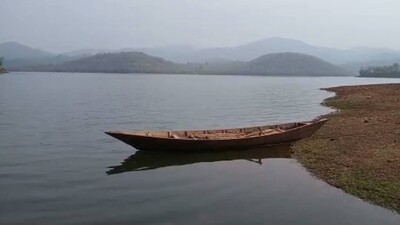Koraput: Increasing deposits of silts and earth due to soil erosion in the catchment area has substantially reduced the water retaining capacity of Kolab reservoir in Koraput district. For the last few years, the district has been witnessing erratic rainfall, which is being touted as another factor responsible for the declining water level in the reservoir.
As a result, drinking water crisis has emerged in the peripheral areas. Groundwater level has also plummeted alarmingly adding to the problem. If the reservoir continues to lose its water retention ca pacity, many parts of the district will see acute drinking water crisis in future, experts pointed out.
Years ago, the district used to experience rainfall for almost six months a year. But the situation has changed now.
The reservoir is spread over 1250 square/km. Industrial units like Nalco and HAL use water from it. Supply of drinking water is also made from the reservoir. However, no one is there to maintain the reservoir and carry out restoration work. Unless done so, the Kolab will suffer the same fate like the Indravati, Balimela and Jalaput reservoirs, experts said.
Mud, sand, gravels and stones get deposited in the reservoir continuously. This has led to its depth getting shallow.
Talking about the issue, Jyotirmayi Lenka, a researcher of ICAR-Indian Institute of Soil and Water Conservation at Sunabeda, said that there is need for soil conservation activities in the catchment area of the reservoir. Plants meant to hold the top soil together should be planted in large numbers.
Chief engineer of the Kolab reservoir, Satrughna Maharana, admitted the fact that soil and sand are getting deposited in the reservoir, but pointed out that there is nothing alarming regarding the water level.
Asked about the issue, engineer Sunil Biswal said that if steps are not taken to dredge and desilt the reservoir on a regular basis, irrigation and power production will be affected in the years to come.
